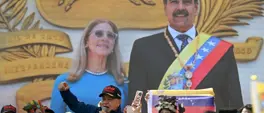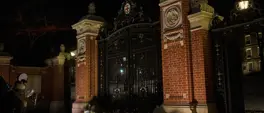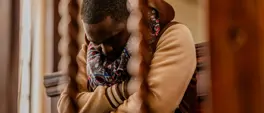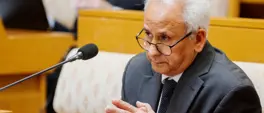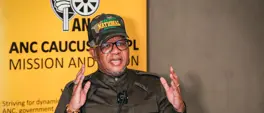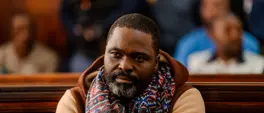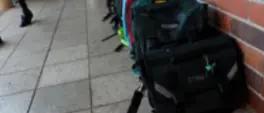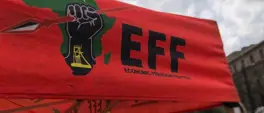MZWANDILE MASINA: The GNU conundrum and a misdiagnosed existential crisis facing South Africa
Mzwandile Masina
23 December 2024 | 4:39ANC members and supporters alike, including those who did not vote for the ANC, assume that the strategic decision that was made to form a GNU constitutes a betrayal to the revolution. Comrades, it is not so, writes Mzwandile Masina.
The Government of National Unity (GNU) platform is to warm up the democratic seat until South Africans make up their minds about who among those that represent 80% of the African population.
Though highly fragmented, it can advance the National Democratic Revolution (NDR) and lead them towards a non-racial, non-sexist, democratic and prosperous path.
Think of it this way - when you are invited to a birthday party and you decide not to show up for whatever reason(s), what must happen? Must the party be cancelled even if most of the guests have arrived and all other logistics procured and in place? The point is, the party must go on!
The fact is, the African National Congress (ANC) received 40% of the electoral support. When counted with the other political parties who claim to be progressive, but leftist, this represents over 66% or a two-thirds majority in the National Assembly. Never mind the black hangers-on who have sold their souls to colonial-apartheid masters, posing as black representatives, yet protecting white privileges.
In case we forgot, the ANC had two choices after the National General Elections on 29 May 2024: either become an official opposition, or form government within the constitutionally prescribed period of 14 days and elect the president within five days after the formation of government.
Conditions presented by other political parties during the negotiations were unattainable and sought to liquidate the movement into oblivion. To an extent, others declared the ANC as a dying organisation and in fact, told us to come to them for our burial, yet we assumed those could have been our natural allies.
Others were in court contesting the very same democratic outcome and were not interested in coming to the negotiation table. Even today, there are still threats that undermine our very tight electoral system, worst of all, with the proposition of international courts when our judiciary has never been furnished with the necessary evidence.
The ANC campaigned for victory together with its alliance partners, the South African Communist Party (SACP), Congress of South African Trade Unions (COSATU) and the South African National Civics Organisation (SANCO) but suffered an unprecedented setback.
In 1994, there were only 14 political parties on the national ballot. In 2024, there were 52. The common enemy became the liberation movement, the ANC.
What is very strange is that ANC members and supporters alike, including those who did not vote for the ANC, assume that the strategic decision that was made to form a GNU constitutes a betrayal to the revolution.
Comrades, it is not so.
Several of the opposition parties even made public utterances and statements that ideology did not matter, as long as they could come together to remove the ANC from power. As history tells us, those shouting the loudest have on many occasions collaborated with colonial-apartheid masters to unseat the ANC without shame.
It has become important to challenge those who suggest that the ANC National Executive Committee (NEC) had other options to consider in order to form a government, outside of the public and official invitation to all of the 18 parties who secured seats in Parliament.
It is now common cause that initially 10 of the 18 parties accepted the invitation to form government within the prescribed time frames. As a matter of fact, in the alliance, there was never a disagreement about securing state power in the first place.
The ANC characterised the predicament as a strategic setback for the NDR, meaning the national liberation of the African people, in particular, and Black people in general, had become severely under threat.
The 1994 democratic breakthrough happened after 82 years of protracted struggle led by the ANC and other liberation forces since 1912.
Those who argue that 30 years of democracy is a long period to have brought about fundamental change never state the colonial conquest and apartheid period which occurred over 350 years of human suffering. They sought to downplay the period of wars of resistance, which was also a period of struggle for liberation.
It is important to state upfront that the majority of ANC members and its alliance do not support the GNU, stating that it has characteristics of colonial-apartheid masters and mass murderers of our people during the black-on-black violence.
Neither would we have been in support of the GNU with characteristics of those who betrayed the revolution due to their personal circumstances, such as the so-called "progressive left", who broke away from the ANC.
They are no better, nor could they be entrusted with the task of advancing the NDR.
If they could forget the sacrifices of those whom they were with in the trenches and brutalised by the system, some who faced the death penalty, prison, and exile, who are we, today, to trust these demagogues and careerists, masquerading as revolutionaries and preying on the ignorance of the masses of our people?
The point one wishes to put across is that the ANC had two decisions to make - adapt or die. Therefore, there should be no member of the ANC or its alliance partners who must assume that there was an easy solution after the ANC suffered the unprecedented setback and electoral outcome of 40% post the 2024 National General Elections.
All we must do is to go back to the drawing board and collectively analyse the predicament we find ourselves in, and suggest the way forward to advance the struggle for total emancipation.
The NDR is under threat either way one looks at it.
We recently attended the SACP Special National Congress where delegates were singing a song, “Asiyifuni i-GNU! Sifuna i-State power”.
Indeed, the song resonates with the masses of our people, but sadly, we cannot have complete "State power" with only 40% electorate support.
For those who think there is anything political “left” kwaBaba and/or kwaBhuti, must just know that those are "political-preneurs", whom one way or the other could be characterised in Marxist terms as one Louis Bonaparte opined.
Let us fix kwaGogo and stop blaming each other.
Mzwandile Masina is an ANC NEC member. He writes in his personal capacity.
Get the whole picture 💡
Take a look at the topic timeline for all related articles.
